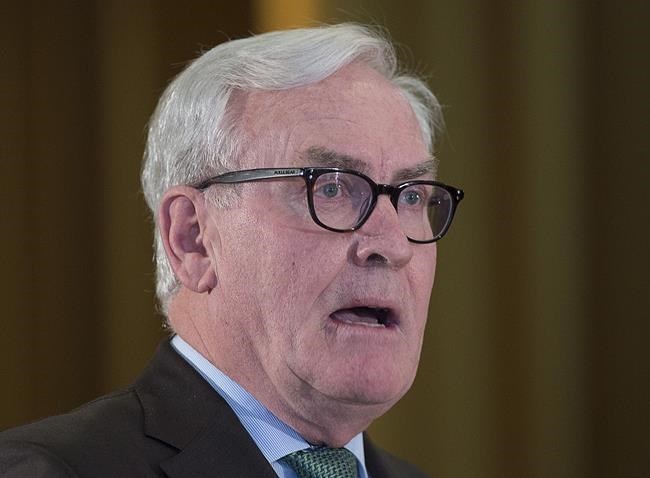FREDERICTON — The Liberals and Greens promised to eliminate the use of industrial herbicide on public land across the province Monday, as New Brunswick's election campaign entered its final two weeks.
Liberal Leader Kevin Vickers said he would end the use of the herbicide known as glyphosate on Crown land over four years. He said the gradual reduction would give industry time to adjust.
Campaigning in Rogersville, Vickers said if elected, the ban would include industrial spraying by Crown corporations such as NB Power.
"We listened to thousands of New Brunswickers who had legitimate concerns regarding the spraying of herbicides containing glyphosate," he said. "When elected, we will immediately move towards eliminating all of glyphosate on public-owned land."
He said a Liberal government would also make sure revenue from the federal carbon tax would go towards projects that are directly tied to improving the environment.
Progressive Conservative Leader Blaine Higgs said Monday that Vickers is inventing policy on the fly in an effort to find issues that might be popular with the public. Higgs said the use of glyphosate is already being studied by a legislative committee.
"An all-party committee was put in place to research the impacts, both benefits and negative, of glyphosate spraying in the province," Higgs told reporters during a campaign stop in Saint John. "It was done so everyone will make decisions based on factual data.
"We need to do what makes sense, and that will be the outcome of whatever factual information is derived from this evaluation."
Green Leader David Coon said a Green government would immediately ban the use of herbicides such as glyphosate on Crown lands and under power lines.
"Successive Liberal and Conservative governments have been afraid to stand up to the big forestry companies," Coon said during a campaign stop in Kedgwick, in northwestern New Brunswick.
He pointed to an anti-glyphosate petition with 35,000 signatures that had been presented to the legislature. "I will stand up for what New Brunswickers want ... it is clear that it is time to ban the use of glyphosate and other herbicides on our forests."
Coon said he is also committed to ending the practice of indiscriminate clearcutting, which he said hurts wildlife and diminishes the quality of timber the forest can grow.
J.D. Irving, the largest forestry company in New Brunswick, issued a statement Monday saying the current political debate is unfairly targeting the province's forestry sector and singling out one chemical, glyphosate.
Spokeswoman Mary Keith said 96 per cent of glyphosate used in Canada is in agriculture. "It can be bought in many hardware stores and it is approved by Health Canada." She said Irving is calling for a review of "all chemicals used on all N.B. land."
Back in Saint John, Higgs said if re-elected, he would continue to encourage research and development of small modular nuclear reactor (SMR) technology.
New Brunswick is seizing an opportunity to develop technology that will put the province and country back on the map as a global leader in emissions reduction, he told reporters.
"If we can develop advanced SMRs right here in New Brunswick and achieve just one per cent of the estimated Canadian market, it would mean $190 million in annual direct and indirect impacts on New Brunswick," he said.
Vickers had campaigned in support of SMR development earlier in the campaign.
People's Alliance Leader Kris Austin spent Monday campaigning in the Fredericton area.
New Democrat interim leader Mackenzie Thomason attended a rally in Moncton to defund the police.
The provincial election is Sept 14.
This report by The Canadian Press was first published Aug. 31, 2020.
Kevin Bissett, The Canadian Press



